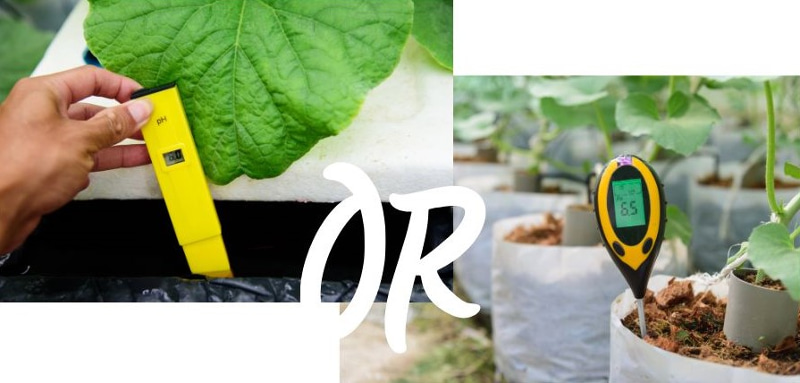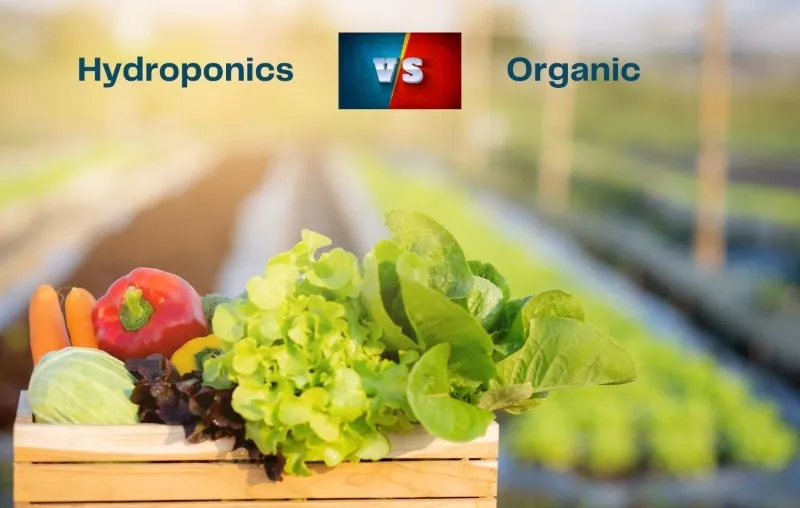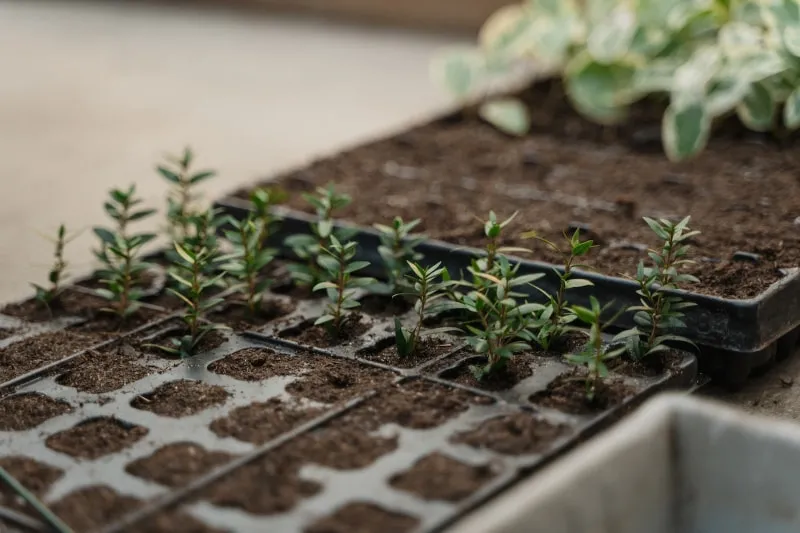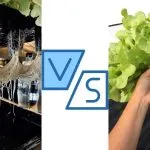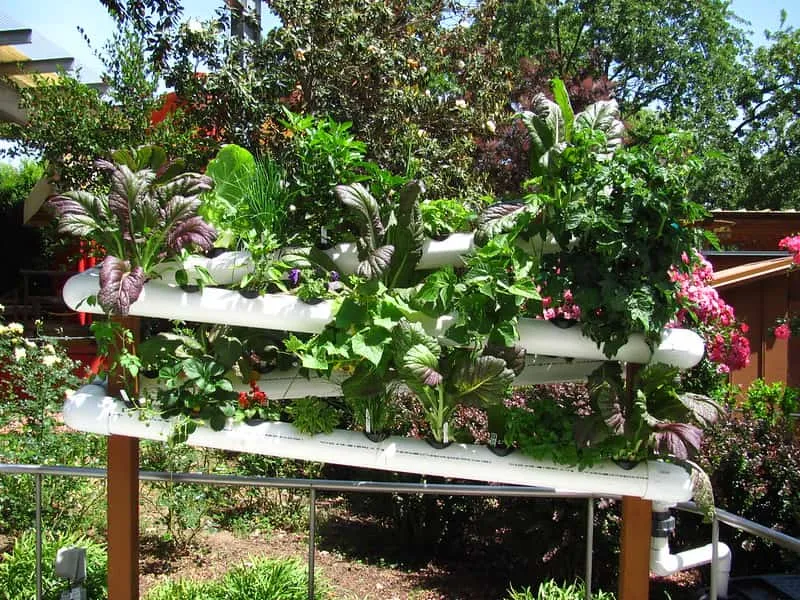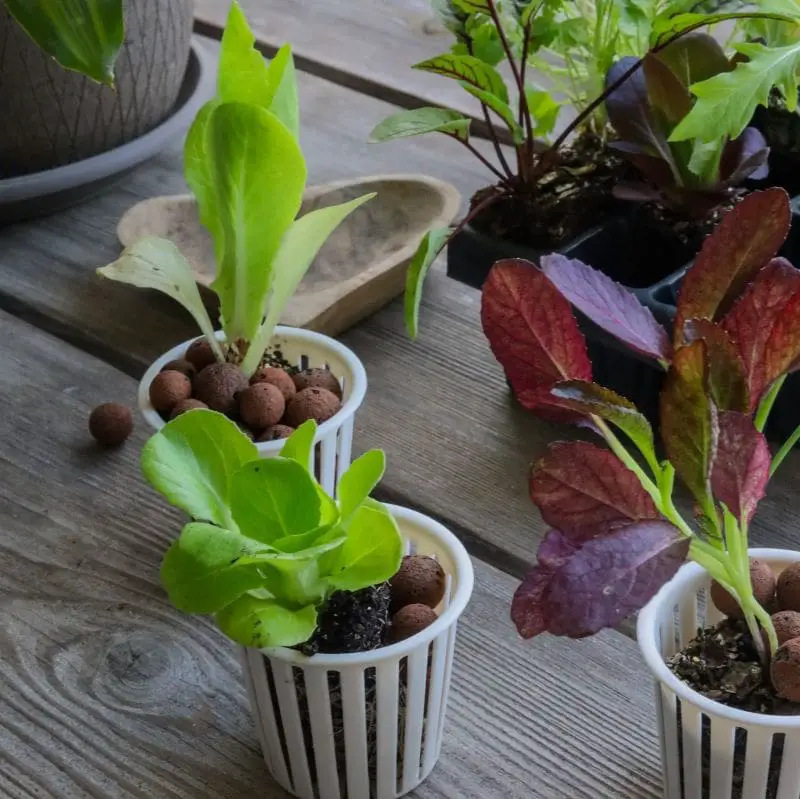Hydroponics is a popular method of gardening that allows you to grow healthy plants without soil, instead using nutrient-rich water to deliver all the necessary nutrients directly to the plants’ roots. You might be wondering if you can use any seeds for hydroponics or if you need special seeds specifically designed for this gardening method.
Can you use any seeds for hydroponics? Good news! You can indeed grow any seed in a hydroponic system, which is one of the reasons this approach to gardening is becoming increasingly popular. Since you have complete control over the growing environment, you can cultivate a wide variety of plants with ease, including fruits, vegetables, and herbs. You don’t even have to worry about soil conditions or temperatures, as these can be controlled within your hydroponic setup.
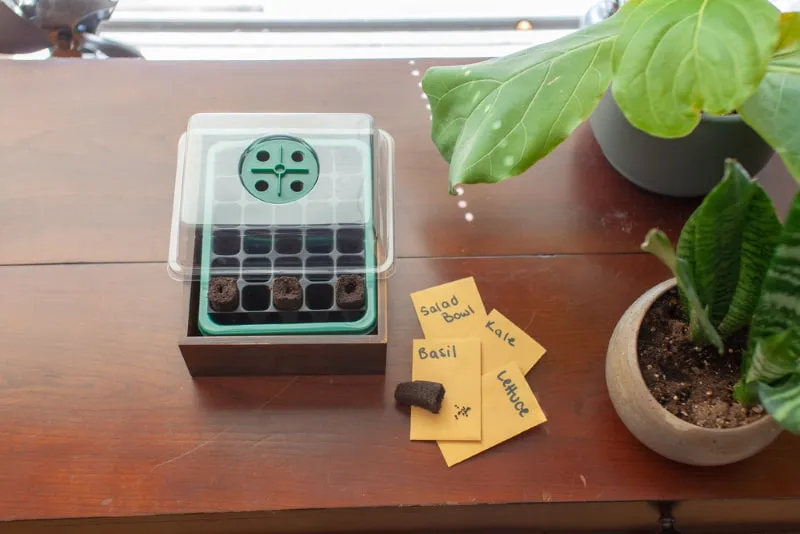
When selecting seeds for your hydroponic garden, it’s important to consider factors such as the type of system you’re using, available space, and the specific growing conditions required by each plant. As you gain experience with hydroponics, you’ll be able to determine which plants thrive best in your unique setup and tailor your seed choices accordingly.
Do You Need Special Seeds For Hydroponics?
When it comes to hydroponic gardening, you might wonder if there’s a need for specific types of seeds or if any seeds will do the trick. The good news is that you can use any seeds for hydroponics. In fact, there aren’t any seeds designated purely as “hydroponic seeds” since hydroponics is a method of growing plants and not a type of plant itself. So, by choosing from the vast variety of seeds irrespective of the growing technique (traditional or hydroponic), you can get started with your hydroponic garden.
However, most hydroponic growers will tell you that it’s essential to select practical seeds that will thrive in the space and environment you have allocated for your hydroponic system. While there’s no need for special seeds, it’s better to go with plants that are known to grow well in hydroponic settings. Some crops are better suited for hydroponic gardens, and choosing them will result in healthier and more bountiful plants.
As hydroponic gardening gains popularity, more and more people find that starting their garden from seeds rather than transferring plants or using cuttings is both more convenient and cost-effective. Keep in mind that seeds used for conventional gardening will work just as well in hydroponic systems, so there’s no need to worry about finding specialized seeds just for your hydroponic garden.
Once you’ve selected your seeds, your next step is ensuring they have the best chance for success in your hydroponic garden. This means providing ample light, adequate climate control, and the right amount of nutrients to create an environment in which your plants will thrive. A little research and preparation will be worth the effort as you watch your seeds grow into healthy, bountiful plants.
Related: Read our guide on everything to know about hydroponic seed starting.
Best Seeds for Hydroponics
When it comes to hydroponic gardening, choosing the right seeds can make all the difference. Here are some top choices for vegetables, herbs, leafy greens, flowers, and fruits that will thrive in your hydroponic system.
Vegetables
Many vegetables grow well in a hydroponic system. Some popular options include:
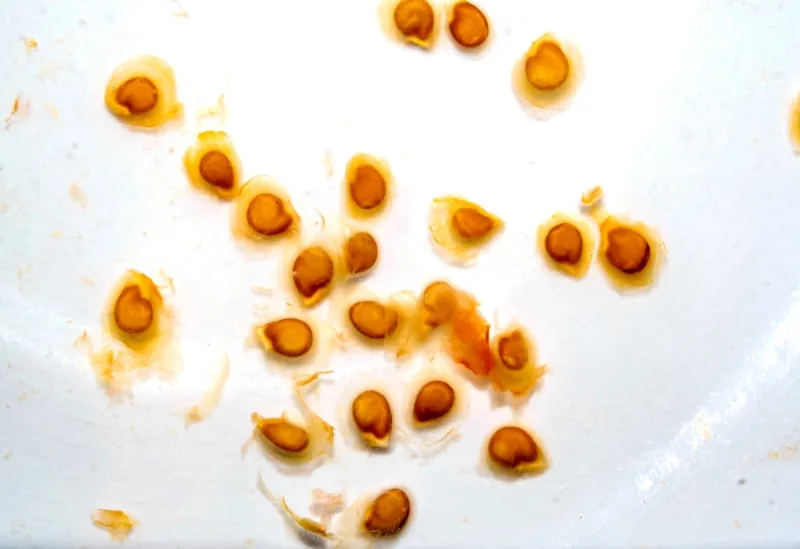
- Tomatoes: With their adaptability to soil-less environments, tomatoes are a prime choice for hydroponic gardens.
- Beans: Known for their ease in growing and rapid growth, beans are another suitable hydroponic vegetable.
- Bell peppers: These colorful peppers will brighten up your hydroponic garden and provide a versatile ingredient for your meals.
Herbs
Herbs can be a perfect addition to your hydroponic system. Some great choices include:
- Cilantro: This popular herb lends a fresh, citrusy flavor to various dishes.
- Mint: Known for its versatility and refreshing taste, mint thrives in hydroponic conditions.
Leafy Greens
Leafy greens are well-suited for hydroponics, with several varieties available:
- Lettuce: A staple for salads, lettuce grows rapidly and consistently in hydroponic units.
- Spinach: Nutrient-rich and versatile, spinach is another excellent choice for hydroponic gardeners.
- Kale: Packed with vitamins and minerals, kale grows well in hydroponic environments.
- Arugula: With its peppery flavor, arugula is a popular leafy green choice for hydroponic growing.
Flowers
Adding flowers to your hydroponic garden not only enhances its visual appeal but can also attract beneficial insects. Some options include:
- Marigolds: Bright and hardy, marigolds are a classic choice for many gardens, including hydroponic systems.
- Zinnias: With their stunning colors and long-lasting blooms, zinnias can bring an attractive touch to your hydroponic garden.
Fruits
Many fruiting plants can be grown hydroponically. Some popular fruit options to consider are:
- Strawberries: Ideal for hydroponic systems, strawberries yield sweet and juicy fruits.
- Cabbage: While it may not be a traditional fruit, cabbage grows well in hydroponic environments and can be just as enjoyable in your garden.
By selecting the appropriate seeds for your hydroponic garden, you can enjoy a bountiful harvest of vegetables, herbs, leafy greens, flowers, and fruits throughout the year.
Seed Selection
When starting your hydroponic garden, seed selection is crucial for successful growth. Not all plants are suitable for soil-less environments, but there are a variety of options for you to choose from.
Various seed companies compile a list of their seeds that have proven rates of success specifically in hydroponic growing systems. When selecting seeds, look for options that specifically mention their compatibility with hydroponic systems. This will ensure you choose the best seeds to optimize your garden’s growth and yield.
Pre Germination Treatment Of Seeds
Some seed companies may offer pre-treated seeds to make the process of starting seeds easier for hydroponic growers. By using pre-treated seeds, growers can save time and effort in the germination process, as well as ensure that their seeds have the best possible chance of success. Pre-treated seeds are labeled as such on the seed packet and are seeds that have undergone some type of treatment before being sold. Scarification and stratification are two common types of seed pre-treatments that can improve the germination rates and growth of hydroponic plants.
Scarification involves breaking, scratching, or nicking the seed coat to allow moisture to penetrate the seed and promote germination. This process is particularly useful for seeds with hard outer shells, such as morning glory, nasturtiums, and purple hyacinth bean.
Stratification, on the other hand, involves exposing seeds to cold temperatures and moist conditions to simulate winter conditions and trigger the seed’s natural germination process. This process is particularly useful for seeds that require a period of cold dormancy, such as many tree and shrub seeds. However, if you are growing your produce under climate-controlled conditions, you can trick the plants into skipping the cold dormancy period completely and instead grow them year-round.
It’s important to note that not all seeds require scarification or stratification, and some seeds may be damaged by these processes. It’s always best to research the specific needs of the seeds you plan to grow and consult with a seed supplier or expert if you’re unsure.
How To Prepare Seeds For Hydroponics
Preparing seeds for hydroponics is an essential step in ensuring a successful and productive system. Follow these steps to prepare your seeds for hydroponic growth:
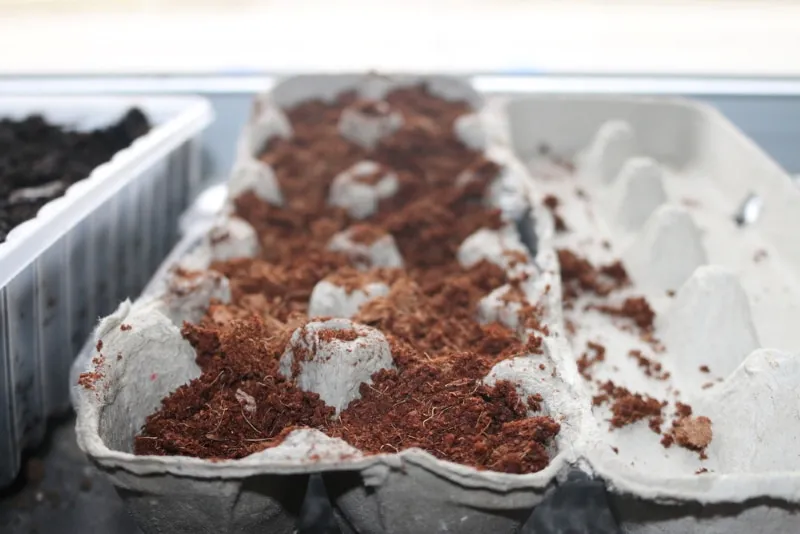
1. Choose the right seeds: While it’s possible to use almost any seeds in hydroponics, it’s essential to select those that have a higher success rate in hydroponic systems. Look for seeds that are specifically labeled for hydroponics or seeds that are known to work well in a soilless environment.
2. Obtain a suitable starting medium: Common mediums for hydroponic seed starting include Rockwool, coconut coir, and starter plugs. These mediums provide the necessary support and moisture retention for the germinating seeds. Make sure to choose a medium that is compatible with your hydroponic system and the specific needs of your seeds.
3. Pre-soak the medium: Before inserting the seeds, you need to soak your chosen medium in water. This ensures that the seeds have access to adequate moisture during germination. Keep the medium moist but not saturated, to avoid drowning the seeds.
4. Place the seeds in the medium: Gently place two to three seeds in each starter plug or cube. Adding multiple seeds in a single starter plug ensures at least one seedling will sprout in case some seeds fail to germinate.
5. Maintain the right environment: Place your seeds in a well-lit area, ensuring that the temperature and humidity are within the desired range for the specific plants you are growing. Check the medium regularly to maintain adequate moisture levels and watch for signs of germination.
By following these steps and using the appropriate materials, you can successfully prepare your seeds for hydroponic growth and enjoy the benefits of this sustainable and efficient gardening method.
Growing Media for Hydroponic Seeds
When it comes to hydroponic systems, choosing the right growing media for your seeds is crucial for a successful and healthy growth. Here are some common types of growing media you can use:
Rockwool cubes offer an excellent balance of water retention and air circulation, making it easy for your seeds to grow strong roots.
Seed Starter plugs are convenient and offer a nurturing environment for germination.
Coco coir has great water-holding capacity while still allowing for proper air circulation.
Peat pellets expand when soaked in water, providing a perfect space for your seeds to grow.
Sand, when mixed with other media, can be used for germinating seeds and provides better drainage and air circulation.
What Can You Not Grow With Hydroponics?
While hydroponics can be a fantastic way to grow a wide range of plants, there are certain types of plants that may pose challenges or are simply not suitable for hydroponic systems. In this section, we will discuss some of the plants that cannot be grown or are difficult to grow hydroponically and provide an overview of the challenges associated with growing them.
Crawling Vines
Some plants, such as crawling vines, might not be the best option for hydroponic systems because they require a large amount of space for proper growth. Examples of these would be plants like squash and zucchini. Their vining and bushy nature can cause the area to be taken over, making them less practical for hydroponic environments.
Corn
Another plant that is not ideal for hydroponic systems is corn. Due to its height and extensive root system, corn requires a lot of space and may not thrive in the limited space provided by most hydroponic setups.
Potatoes
Lastly, while it is possible to grow potatoes hydroponically, they can be quite challenging. Potatoes require a significant amount of space for their root systems and can be difficult to manage within the confines of a hydroponic system. In addition, the tubers may rot in a moist hydroponic environment, and it can be difficult to harvest the potatoes without disturbing the entire system. Therefore, it’s not recommended to grow potatoes in conventional hydroponic systems.
As you can see, certain types of plants may not be suitable for hydroponic systems due to their size, growth patterns, or specific requirements. It’s important to carefully consider the plants you choose for your hydroponic garden to ensure a successful growing experience.
Special Seeds and Heirloom Varieties
The good news is that you don’t need specific seeds for hydroponics. People usually use the same seeds they would for traditional soil-based gardening; however, certain varieties grow better in hydroponic systems.
One option to consider is heirloom seeds. Heirloom varieties have been passed down through generations and are favored for their unique flavors, colors, and textures. If you’re concerned about hydroponic produce lacking a depth of flavor compared to soil-grown produce, then heirloom varieties can overcome this. They’re also prized for their genetic diversity, which is essential for a healthy and thriving garden. Using heirloom seeds in your hydroponic system can give you access to a wider variety of produce that may not be available in stores.
Here are some popular heirloom varieties and other plants well-suited for hydroponic systems:
- Herbs (e.g., basil, parsley, cilantro)
- Lettuce (e.g., oak, romaine, iceberg, butter)
- Spinach
- Arugula
- Kale
- Bell peppers
- Strawberries
- Tomatoes
As you gain experience in hydroponic gardening, feel free to experiment with different heirloom varieties and other seeds. Keep in mind that you may need to adjust your system, including nutrient solutions and lighting, to accommodate different plant requirements. Happy gardening!
Where To Buy Hydroponic Seeds
Finding hydroponic seeds can be easy with a variety of online and local sources available. Here are a few options for where you can purchase seed packets specifically suited for hydroponic gardening:
Johnny’s Selected Seeds is a great option to find hydroponic seeds for both vegetables and herbs. They offer a selection of pelleted lettuce seeds, basil seeds, and even organic kale seeds, among other options for your hydroponic garden.
Another online source is Sow Right Seeds, which has an article in their Planter’s Library that lists the top 10 seeds for any hydroponic garden system. They believe their seeds can be used in all types of gardens, including indoor hydroponics.
If you’re interested in growing a variety of fruits and vegetables, Sustainable Seed Co., which is now a part of True Leaf Market, has a popular heirloom seed assortment that includes over 4,000 non-GMO seeds across 15 varieties to choose from.
Lastly, your local nursery or garden center might have seeds for hydroponics, especially if they specialize in hydroponic equipment or plants. Check out their selection or ask for assistance from their knowledgeable staff in finding the best seeds for your hydroponic garden.
Seed Germination Tips
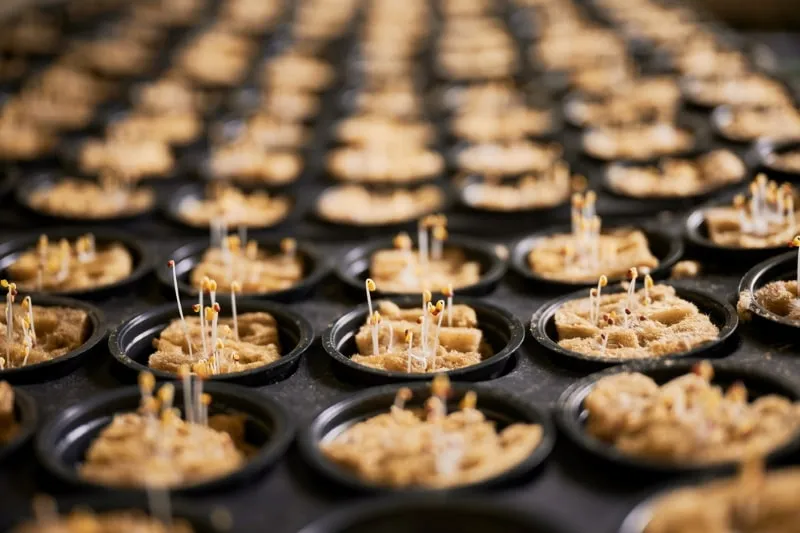
When starting your hydroponic garden, it’s crucial to choose the right seeds and successfully germinate them. Here are some tips to help you through the seed germination process:
1. Select high-quality seeds: Always choose seeds from reputable sources to ensure they’re viable and ideal for hydroponic growth. Avoid using seeds designed for soil-based planting.
2. Prepare the seed starting medium: You can use seed starting mediums like Rockwool or starter plugs for germination. Make sure they’re large enough to accommodate your plant’s growth. To begin, soak your medium in water.
3. Sow multiple seeds: When planting in starter plugs or Rockwool, place two or three seeds in each space. This increases the chances of sprouting and allows you to select the strongest seedling for your hydroponic system.
4. Maintain humidity and temperature: High humidity and consistent temperatures (around 70-80°F or 21-26°C) are essential for seed germination. You can use a heating mat on a grow tray or a germination chamber to maintain a stable environment for your seeds.
5. Monitor moisture levels: Your seeds need moisture to initiate germination. Ensure the seed starters remain damp but not soggy to promote healthy sprouting.
6. Transfer seedlings to the hydroponic system: Once the seeds have sprouted and developed a few sets of true leaves, they’re ready for transplantation from the grow tray into your hydroponic system.
By following these seed germination tips, you’ll be well on your way to a thriving hydroponic garden.

